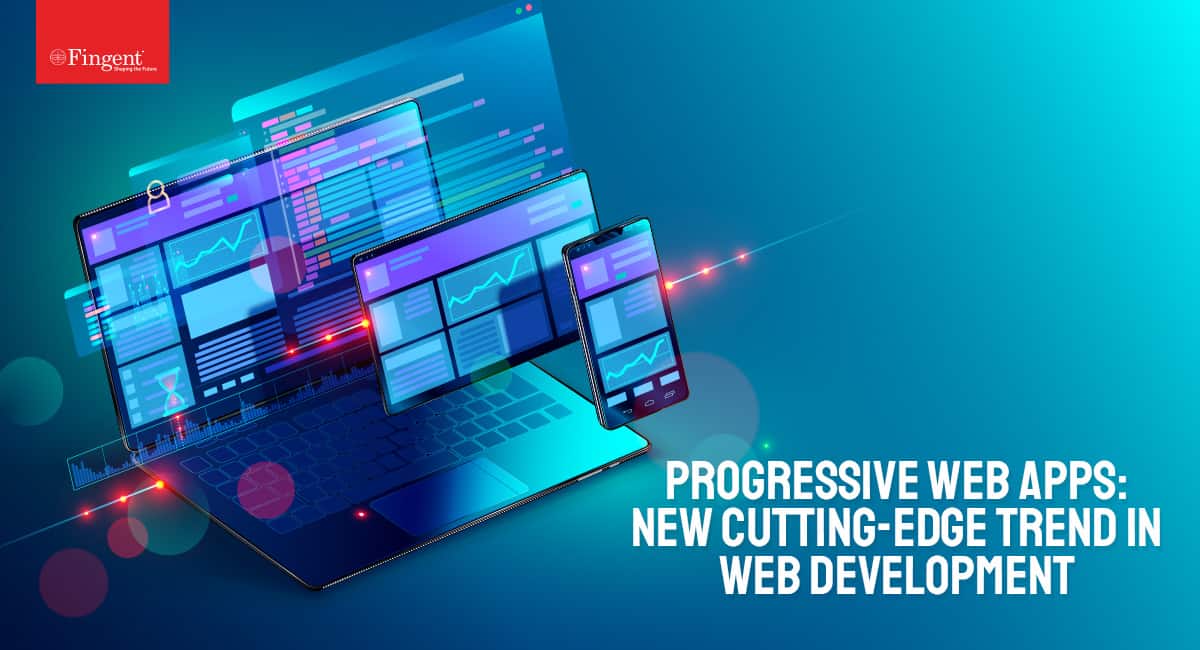Are PWA’s Replacing Native Mobile Apps?
Are Progressive Web Apps A Better Choice Than Native Mobile Apps?
Mobile Apps not only dominate electronic space on our mobiles but also play a dominant role in our lives. Many people around the world tend to start their day not with a morning cup of coffee but with a mobile app. Decisions as simple as which fitness routine to choose to critical financial decisions are often based on information obtained from mobile apps. More than ever before, people are downloading and using a large number of apps which are not only helping them find what they want instantly, but also assisting them in accessing information, buying products, availing services, and staying updated about new offerings.
With apps dominating the market, it is no longer relevant to ask if your business needs a mobile app development. The question is which mobile app is better for your business. If a native mobile app is what you have, should you be concerned that progressive web apps might topple native mobile apps? This blog will discuss these questions in detail.
Are you looking forward to building an innovative mobile app to boost your revenue?
Get your FREE mobile app specification template here!
Why Choose The Right App Development Strategy?
Mobile apps are like route maps to your business. A wrong app design could confuse your customers. This either results in them losing interest in your product or worse yet, leads them right into the arms of your competitors. Therefore, choose your app development strategy carefully. Between a native app, a web app or a hybrid app, consider which of them would be appropriate for your business? The technology you select is what determines how your app will be developed and how users will interact with it. Choosing the wrong technology can be an expensive mistake resulting in inaccessibility or poor performance. Here are a few answers to questions that will help you choose the right technology.
What is a progressive web app?
Web Apps which blend the best features of Native and Web Apps are called Progressive Web Apps. They are called progressive because as the name suggests, they are progressing constantly, it is an evolving technology.
How does PWA work?
PWA works in the background, making the user experience smooth. When the user interacts with the app, it loads all the necessary resources. Since PWA uses JavaScript, its code gives the app the ability to work offline and helps load the website faster than native apps. The latest improvements in scripting languages have made it easier to convert or build your website into a PWA. Also, it is gaining more attention from designers and developers.
Related Reading: Check out these four top secret tips to consider while developing a mobile app.
How does PWA have an Upper hand over Native Apps?
In the wrestle between Native and PW apps, many aspects give PWA an upper hand. Here are some of them:
-
Adaptable
Because PWAs are built with progressive enhancement, they work for every user, regardless of the type of browser used. It can automatically adjust to various types of devices such as a desktop, mobile, tablet and so on. In other words, PWAs are not limited to a specific platform. Therefore, you need not develop separate versions of the app for different platforms.
-
Auto Update
Updates are a data consuming and often frustrating aspect of any app. Progressive apps auto-update in the background without disturbing your in-app experience and with minimal data consumption.
-
Easy to Install
Without taking the user to an app store, PWAs allow users to install the website as an app on their home screen. The size of apps that we install from any store varies, but they are quite often in the MBs. With PWA, you don’t need to waste much-needed disk space and internet data because it takes up less than a megabyte of space and it takes less than a second to install. Also, they can be shared easily via a URL and do not necessitate complex installation.
-
Budget-friendly
In terms of app development and maintenance, the biggest advantage for an app publisher is the cost saving. Building a mobile app is not the most budget-friendly thing to do. It takes time and money to build a mobile app. And for it to be popular, it has to be present on all platforms, which further hikes up the price. The PWA alternative is not only, budget-friendly, but can be done in a relatively short time. As it is progressive, it will not need further customizations.
-
Web Push Notifications
PWA is capable of supporting Push Notification API. Studies show that push notifications have a 50% higher opening rate and 7 times higher click rate than email messages.
-
Discoverability
Perhaps, we have spent hours on an app looking for something that we eventually never found. If you want search results from more than one app, you will have to go to each individual app to search. PWA’s however, can be crawled by search engines. You can search for something on Google and get appropriate results from the content inside your progressive app.
-
User-friendly
Progressive Web Apps are available instantly. Since it is built on the app shell model it feels like a mobile app with app-style interactions. To ensure content is securely delivered it is served via HTTPS.
Related Reading: Read on to know whether React Native stands a better chance in mobile app development than Flutter.
Embrace Progress
In a progressive era, such as this, we cannot ignore the importance of mobile application development. The variety of applications we have, suits all kinds of users whether young or old. The PWA market has solutions for each user. Advancement in technologies has also played an important role in the success in PWA. Whether it is business, entertainment, health or education, today each sector is experiencing the benefits of PWAs. PWA technology is improving every day with new functions and features in the making. Advancement in PWA and its technologies may one day pin down native apps.
Read more on top technologies to be used for mobile app development.
Whether it topples native mobile apps or not, it is definitely a good tool in your business arsenal. If that’s what you want, give us a call at Fingent and allow us to help you implement it in your business.
Read More: Mobile App Development : 4 Tips To Consider
Stay up to date on what's new

Recommended Posts

21 Jul 2023 B2B
How Biometric APIs Will Replace Passwords on Mobile Apps
Technology successively progresses all around us; from the simplest basic Google searches to the working of aircraft, technology has indented its value in everyday life. Biometric APIs are not a……

22 Nov 2022 B2B
React Native, Flutter, Ionic, Xamarin – A Comparison Between The Top Mobile App Development Frameworks
Frameworks are the backbone of mobile app development. They are essential to building dependable apps quickly. When choosing a framework, you can choose between native or cross-platform applications. Though both……

14 Jan 2022 B2B
Know The Main Price Drivers Of App Development In 2024!
Everyone uses software products. From toddlers to grandparents, in one way or the other, almost everyone has used a software product. The number of mobile devices operating worldwide stood at……

23 Jul 2021
Progressive Web App Development: 10 Benefits – Fingent
Progressive Web Apps: New Cutting-Edge Trend in Web Development Speed and convenience have become crucial in keeping online shoppers engaged. Progressive Web Apps development is a solution that allows the……
Featured Blogs
Stay up to date on
what's new





















































